The Central Bank of Nigeria (CBN) has clarified that open banking has yet to be launched, despite earlier projections targeting August 2025. The regulator emphasizes that significant strides are being made in establishing governance frameworks and standardizing APIs to ensure the system’s security and efficiency.
“Open banking is not operational at this time,” stated Chai Gang, Deputy Director of the CBN’s Payments Systems Policy Department. “We have developed a governance framework and are in the process of creating a uniform API standard. The launch is imminent.”
Gang shared these insights during a panel discussion at Moonshot by TechCabal, where he was joined by Tunde Ogundipe, CEO of E-doc Online, a platform providing open banking data infrastructure tailored for emerging markets, to review the current status of the policy.
Although the CBN released operational guidelines for open banking in March 2023, the technical and regulatory foundations are still being finalized before a full-scale deployment. No updated timeline for the rollout was provided.
“We have both the open banking guidelines and the overarching framework in place,” Gang explained. “Protecting customer data privacy remains paramount.”
Open banking enables authorized financial institutions and third-party providers to exchange customer data with explicit consent through APIs. Once implemented, it promises to foster innovative digital financial services and broaden credit accessibility across various sectors.
“Customer consent forms the cornerstone of open banking,” Gang emphasized. “We are developing an automated system to ensure customers are fully informed about what data is shared, the duration of access, and their ability to withdraw consent at any time.”
Driving Financial Inclusion Through Collaboration
Ogundipe highlighted that the success of open banking hinges on robust cooperation and mutual trust among all stakeholders. “Strong customer consent is essential, but equally important is the partnership between banks and fintechs, fostering a digital economy built on collaboration rather than competition,” he noted.
“Open banking is a powerful tool for enhancing financial inclusion, particularly by enabling more small and medium-sized enterprises (SMEs) to access credit, thereby integrating more individuals into the financial ecosystem,” Ogundipe added, underscoring its potential impact in underserved rural communities.
With approximately 40 million small businesses in Nigeria often lacking formal documentation or collateral, many remain excluded from traditional lending. Sharing data through open banking could help create alternative credit profiles, unlocking new financing opportunities.
Data Control and Accountability in Open Banking
As Nigeria prepares to activate its open banking framework, Gang explained that the CBN will clearly delineate accountability in the event of data breaches-a critical concern as more entities gain access to sensitive customer information. Responsibility will be determined based on where the breach occurs.
Licensed operators will manage personal customer data and bear full responsibility for any breaches, whereas unlicensed parties will only be permitted to handle anonymized, non-personal data.
“The party that loses the data is liable,” Gang affirmed. “Whether data is stored or transmitted, it must be safeguarded, and failure to do so carries consequences.”
He further clarified that both regulated open banking participants and non-regulated entities must implement stringent security measures once they have custody of customer information.
Streamlining Integration and Fair Governance
Ogundipe described the current challenges faced by operators who must integrate with multiple banks, each with its own API. Open banking aims to simplify this complexity.
“Connecting with 27 different banks means dealing with 27 unique APIs, which is highly inefficient,” he said. “Open banking consolidates this into a single API, a unified standard, and a central registry, significantly reducing fraud risks and cutting integration time from months to weeks.”
Effective governance is also vital to ensure equitable treatment of all fintech players and seamless integration with traditional banks.
“If banks control the process unilaterally, it will be challenging for new entrants,” Ogundipe warned. “A level playing field is essential.”
The existing framework provides banks with clear guidelines on collaborating with both licensed and unlicensed participants, facilitating smoother decision-making in the open banking ecosystem.
The Potential Role of Stablecoins in Nigeria’s Open Finance
During the panel, Gang confirmed that the CBN is actively examining how virtual assets, including stablecoins, fit within Nigeria’s regulatory landscape.
“We are aware of the growing use of virtual assets, particularly stablecoins, within the country,” he said. “The CBN is closely monitoring these developments.”
However, he cautioned that since most stablecoins are pegged to the US dollar, widespread retail adoption could complicate monetary policy management.
“We are collaborating with agencies like the Securities and Exchange Commission to assess the implications, but these discussions are ongoing,” Gang noted.
Nigeria’s open banking initiative remains one of the continent’s most forward-thinking projects. The CBN stresses that a measured, stepwise approach is crucial to maintaining public confidence. As Gang concluded, the system’s architecture is being meticulously crafted to ensure a secure and reliable launch.










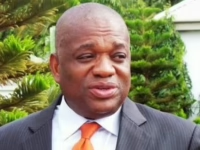





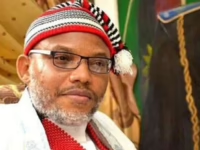


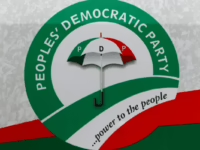

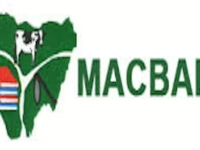
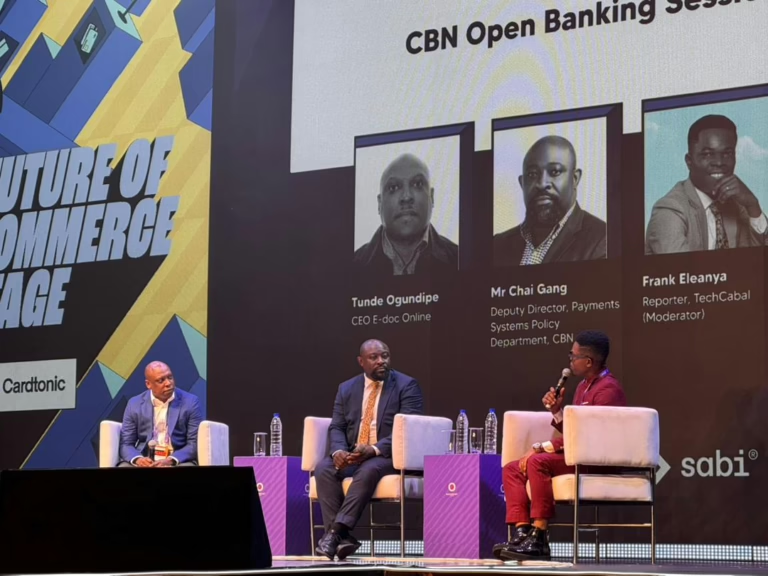
0 Comments